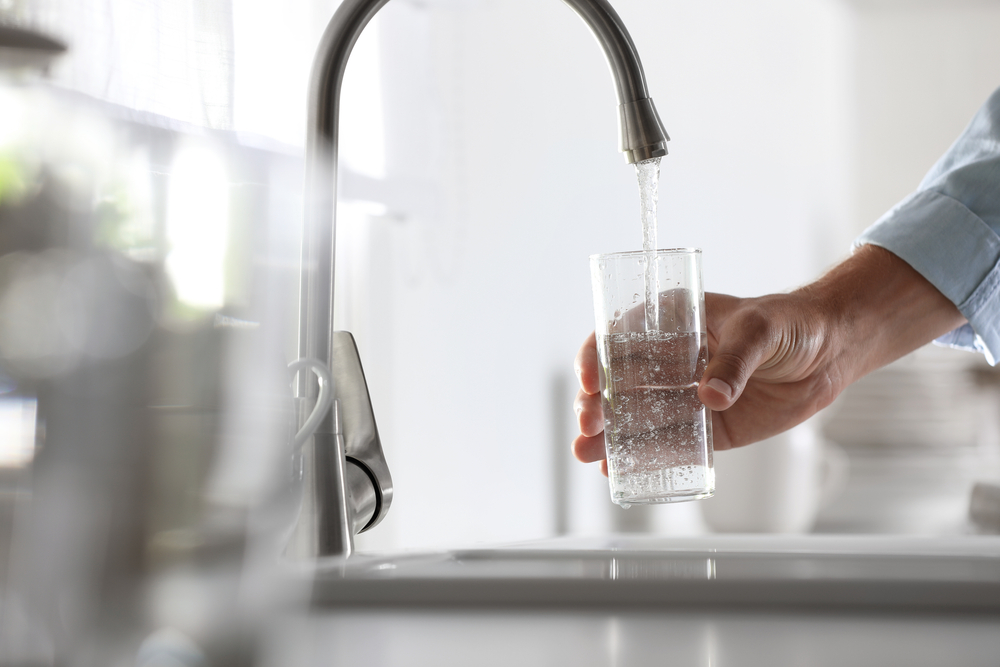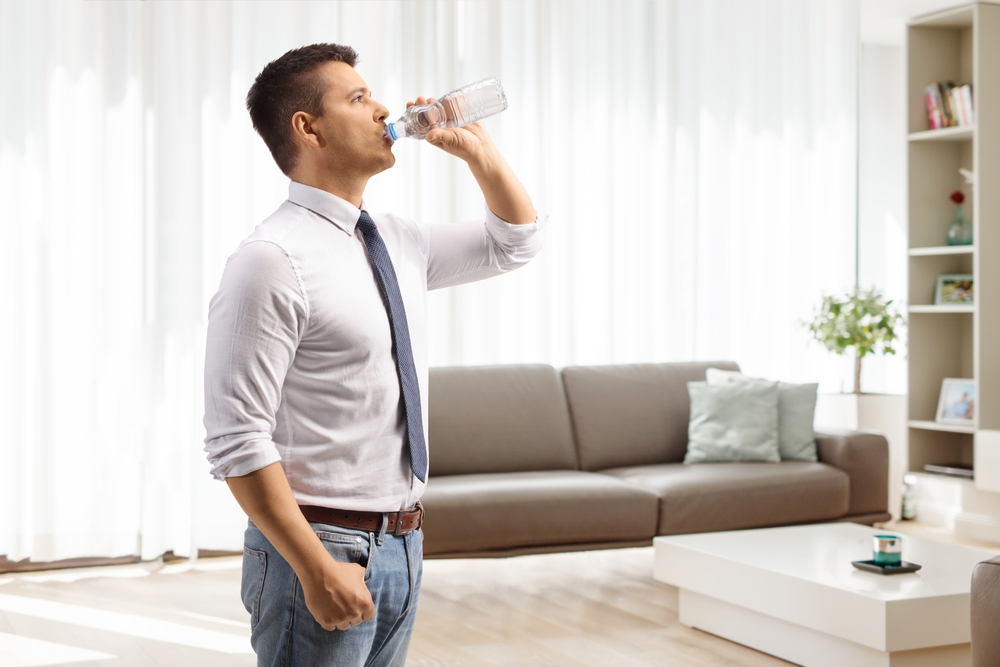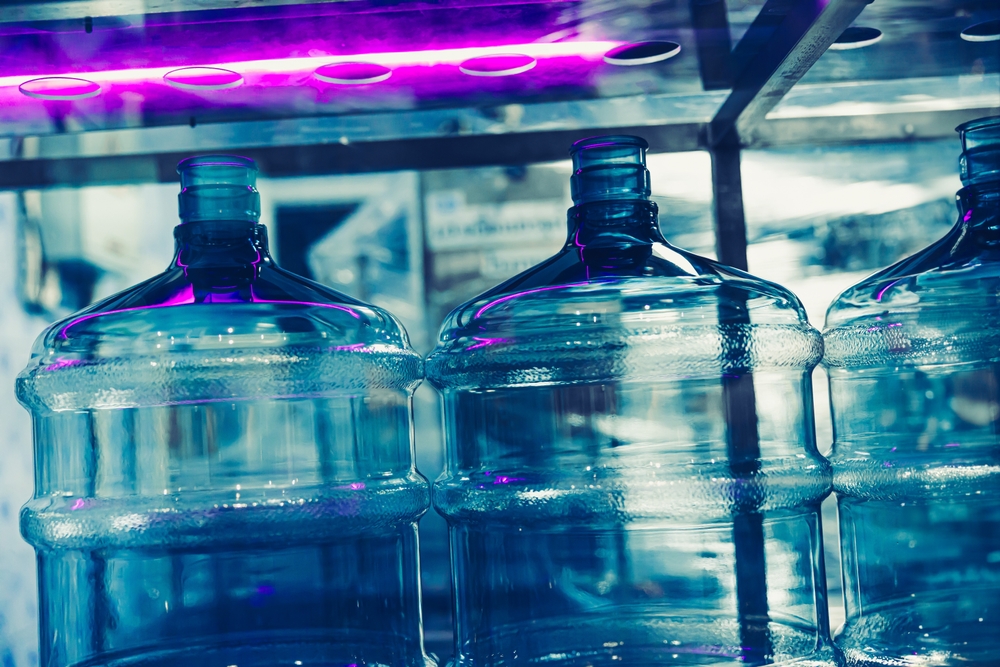Hydration is an essential cornerstone of our overall health, impacting our vitality, cognitive functions, and bodily functions. Yet, ensuring safe hydration extends beyond just drinking water; it encompasses the quality of the water we consume. This is where the pivotal role of water filters comes into play.
The importance of adequate hydration cannot be overstated, as it forms the foundation of a healthy lifestyle. However, the quality of the water we drink is equally critical. Unfiltered tap water may contain impurities, contaminants, or traces of chemicals that compromise its safety and taste.
Read: 10 Summer Safety Tips For Water Sports Adventurers
Types of Water Filters
Types of Water Filters encompasses various filtration systems designed to ensure safe and clean drinking water. These systems can be classified into three main types: point-of-use filters, whole-house filtration systems, and portable filters for on-the-go hydration.

Point-of-Use Filters
Point-of-use filters are designed to provide immediate filtration at specific points where water is consumed or used. They offer convenience and accessibility, catering to different needs and preferences. Here are some common types of point-of-use filters:
1. Pitcher Filters:
Pitcher filters are simple, budget-friendly devices that involve pouring tap water into a pitcher with an integrated filter. The water passes through the filter, removing impurities and enhancing taste. These filters are ideal for small households or individuals seeking a straightforward and portable filtration solution.
2. Faucet-Mounted Filters:
Faucet-mounted filters attach directly to the faucet, allowing filtered water to flow out when the tap is turned on. They are easy to install and provide filtered water instantly, eliminating the need for separate containers. Faucet-mounted filters come in various styles and offer an affordable and practical filtration option for homes.
3. Countertop Filters:
Countertop filters sit on the kitchen countertop and connect to the faucet via a diverter valve. They use a combination of filter cartridges to remove contaminants, providing clean water for drinking and cooking. Countertop filters offer efficiency and ease of use without requiring installation under the sink.
Whole-House Filtration Systems
Whole-house filtration systems are comprehensive solutions designed to purify water for the entire household. These systems treat water as it enters the home, ensuring that all faucets, showers, appliances, and even outdoor connections receive filtered water. They typically include multiple stages of filtration to address various contaminants and offer a centralized approach to water purification.
Portable Filters for On-the-Go Hydration
Portable water filters cater to individuals who require clean water while traveling, hiking, or in emergency situations. These compact filters are designed for mobility and convenience, allowing users to purify water from natural sources like streams or lakes. They come in various forms, such as straw filters, bottle filters, or pump filters, and use different filtration mechanisms to ensure safe drinking water on the move.
How Water Filters Work
Choosing the Right Water Filter
Benefits of Filtered Water
Filtered water offers numerous benefits compared to unfiltered tap water, providing improved taste, safety, and overall health advantages. Understanding these benefits helps emphasize the significance of using water filters for safe hydration:

1. Improved Taste and Odor
Filtered water typically tastes and smells better than unfiltered tap water. Water filters effectively remove chlorine, sediment, and other impurities that can impart unpleasant tastes or odors, resulting in a cleaner and fresher-tasting drinking experience.
2. Removal of Contaminants and Impurities
One of the primary benefits of filtered water is its ability to remove various contaminants and impurities, making it safer for consumption. Water filters target and eliminate pollutants such as:
- Chlorine: Used in water treatment but can affect taste and odor.
- Heavy Metals: Filters can reduce levels of lead, mercury, arsenic, and other metals harmful to health.
- Microorganisms: Some filters remove bacteria, viruses, and parasites, ensuring microbiologically safe water.
3. Health Benefits and Long-Term Effects:
Drinking filtered water offers several health advantages, contributing to overall well-being:
- Reduced Health Risks: By removing contaminants, filtered water reduces exposure to potential health hazards linked to certain impurities in drinking water.
- Better Hydration: Cleaner and better-tasting water can encourage increased water intake, promoting proper hydration levels essential for overall health.
- Potential Long-Term Effects: Consistent consumption of filtered water may contribute to better health outcomes, potentially reducing the risk of waterborne diseases or long-term exposure to harmful substances.
Other Benefits:
- Environmental Impact: Using water filters reduces reliance on bottled water, which positively impacts the environment by reducing plastic waste.
- Cost Savings: While there’s an initial investment in purchasing a water filter, it’s usually more cost-effective in the long run compared to buying bottled water regularly.
Using Water Filters at Home
Using water filters at home is a proactive step towards ensuring the quality and safety of the water you and your family consume. Whether it’s to improve taste, eliminate impurities, or address specific water quality concerns, incorporating water filters into your home provides numerous advantages.
Installation and Setup Guidelines
Installing a water filter at home is a straightforward process, usually requiring minimal tools and effort. Depending on the type of filter chosen, installation can involve attaching a filter to the faucet, placing a countertop filter, or integrating a whole-house filtration system. Manufacturers often provide detailed instructions for easy setup.
Proper Maintenance and Filter Replacement Schedules
Maintaining your water filter ensures its continued efficiency in providing clean water. Regular maintenance involves tasks such as cleaning filter components, checking for leaks, and following recommended cleaning schedules. Additionally, adhering to filter replacement schedules is crucial to guarantee optimal performance. Most filters require periodic replacement of filter cartridges to maintain effectiveness.
Tips for Maximizing Filter Efficiency
- Regular Cleaning: Clean the filter components as per the manufacturer’s recommendations to prevent buildup and maintain water flow.
- Follow Replacement Schedules: Ensure timely replacement of filter cartridges or components to maintain filtration efficiency.
- Monitor Water Quality: Keep an eye on changes in water taste, odor, or clarity as indicators of potential filter issues or the need for replacement.
Using water filters at home offers the convenience of having clean and safe drinking water readily available. It not only enhances the taste but also provides peace of mind by reducing exposure to contaminants present in unfiltered tap water.
Moreover, home filtration systems cater to individual needs, allowing customization based on specific water quality concerns. Whether it’s for drinking, cooking, or other household uses, having filtered water accessible at various points within the house promotes a healthier lifestyle.
Read: Traveling with Kids: Keeping the Little Ones Entertained and Safe
Ensuring Hydration Safety
Ensuring hydration safety goes beyond merely drinking water; it involves various practices and considerations to guarantee that the water consumed is clean, safe, and supports overall health. Here’s a comprehensive explanation:

Hydration Best Practices
- Adequate Intake: Ensure a consistent intake of water throughout the day to maintain proper hydration levels. The recommended amount varies based on factors like age, weight, and activity level.
- Balanced Intake: Incorporate electrolyte-rich beverages or foods, especially during physical activity or in warmer climates, to maintain electrolyte balance.
Monitoring Water Quality
- Regular Testing: Periodically test water quality, either through home testing kits or by accessing local water quality reports. This helps identify any contaminants present in the water supply.
- Observation of Changes: Be vigilant about any changes in water taste, odor, or appearance, as these could indicate issues with water quality.
Understanding and Addressing Contaminants
- Identification: Familiarize yourself with potential contaminants present in the local water supply. Common contaminants include bacteria, viruses, heavy metals, pesticides, and industrial pollutants.
- Appropriate Filtration: Select appropriate water filters that effectively remove identified contaminants based on water quality reports or tests.
Hygiene and Safe Handling
- Clean Storage: Ensure water storage containers are clean and sanitized regularly to prevent the growth of bacteria or other pathogens.
- Safe Handling: Practice safe handling of water, especially in situations where water may be vulnerable to contamination, such as during storage or transportation.
Addressing Specific Needs
- High-Risk Situations: Take extra precautions in high-risk situations, such as traveling to regions with uncertain water quality, by using portable water filters or consuming bottled water from trusted sources.
- Vulnerable Populations: Pay attention to the specific hydration needs of vulnerable populations, including infants, the elderly, or individuals with compromised immune systems.
Environmental Considerations
- Conservation Efforts: Contribute to water conservation efforts to ensure long-term access to clean water. Conserving water resources helps maintain adequate supplies of safe drinking water for communities.
Environmental Impact of Water Filters
The environmental impact of water filters encompasses their production, usage, disposal, and overall contribution to sustainability. Understanding these aspects is crucial in choosing filters that minimize environmental harm and promote eco-friendly practices:
Sustainability and Eco-Friendly Filter Options
- Material Selection: Some water filters are made from sustainable or recyclable materials, reducing their environmental footprint.
- Energy Consumption: Consider filters that require less energy for operation to reduce overall environmental impact.
Disposal and Recycling Considerations
- Filter Lifespan: Filters with longer lifespans or those that allow for filter cartridge recycling contribute positively to reducing waste.
- Proper Disposal: Ensure proper disposal methods for used filter cartridges to prevent environmental pollution. Some brands offer recycling programs for filter components.
Waste Generation
- Waste Reduction: Certain filter types produce less waste during operation or have replaceable parts, reducing the amount of discarded materials.
- Minimal Packaging: Opt for filters with minimal packaging or those that use recyclable packaging materials to reduce excess waste generation.
Environmental Footprint Comparison
- Comparative Analysis: Compare the environmental impact of using water filters versus alternative options, such as reliance on bottled water. Consider factors like carbon footprint, resource consumption, and waste generation.
Read: Travel Document Organization: Keeping Passports and Visas Safe
Efficiency and Effectiveness
- Efficient Use of Resources: Choose filters that efficiently remove contaminants without excessive water wastage or energy consumption.
- Life Cycle Assessment: Consider conducting a life cycle assessment to evaluate the overall environmental impact of a filter from production to disposal.
Adoption of Sustainable Practices
- Consumer Behavior: Encourage responsible consumer behavior by selecting filters that align with sustainable and eco-friendly practices.
- Advocacy for Sustainability: Support and advocate for companies that prioritize sustainability and implement environmentally conscious practices in filter production and distribution.






